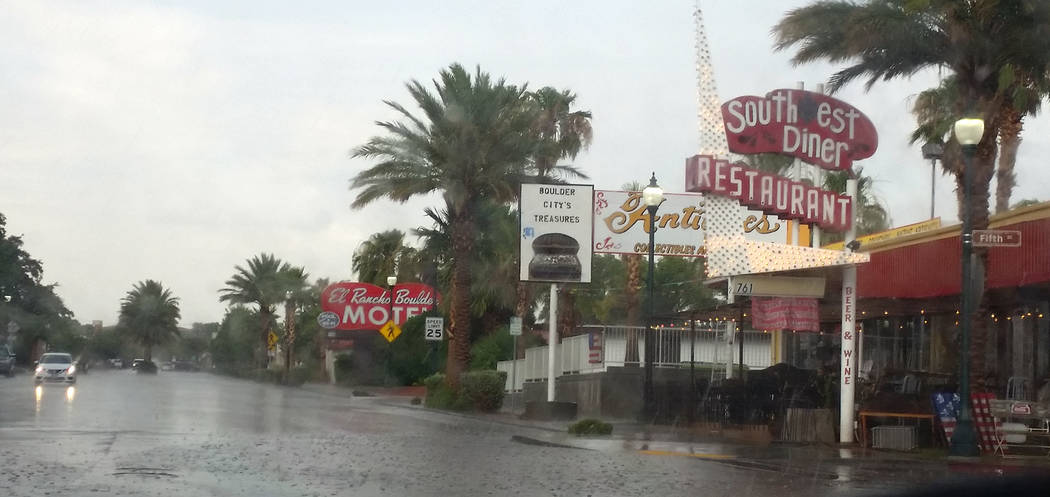Residents encouraged to prepare for monsoon season
Monsoon season began Saturday,, June 15, and even though no patterns have been sighted in Boulder City, municipal staffers are still encouraging residents to be prepared.
“No injuries or deaths have occurred in Boulder City over the past five years and we hope to keep it that way,” said Fire Chief Kevin Nicholson. “That is why proper planning and education is so critical.”
According to the city, monsoon season continues through Sept. 30.
Nicholson said that when the rain does start, the town’s washes, flood control channels and detention basins can become dangerous very quickly even if they appear safe.
“People who drive through floodwaters are balancing the temporary convenience of getting somewhere faster with the permanent inconvenience of dying,” he said. “Don’t try it. It’s not worth the risk.”
According to the Clark County Regional Flood District, in order to stay safe in a flood, people should head for higher ground, stay away from floodwater and avoid unnecessary travel.
“We’ve worked closely with the Clark County regional flood control over the past few years,” said City Engineer Jim Keane. “Efforts have focused on drainage, especially alongside major roadways, to make sure runoff does not wash over roads. The city and flood control district recently completed two flood control projects, one the North Railroad Conveyance Phase 2 project by the veterans home, and the other the Hemenway Watershed Improvements Phase IIA project. Both of these projects provide increased flood protection for the areas.”
City staffers also work to keep residents informed of current weather conditions.
“The public works staff monitors weather forecasts, especially this time of year,” said Public Works Director Keegan Littrell. “Staff inspects and cleans stormwater facilities, including storm drains, drop inlets and channels regularly, but particularly before the start of monsoon season to ensure they are clear and ready for use. Staff works to be sure roadways are safe for drivers by responding quickly, especially to flood-prone areas, and when there are power outages, crews try to get power restored as quickly and safely as possible.”
According to the National Weather Service, Las Vegas has received more than 4.7 inches of rain this year, higher than the yearly average of 4.2 inches. Last year, Las Vegas received 0.87 inches of rain during monsoon season, less than the 1.01-inch average during the 108 days of the season.
The Weather Channel shows Boulder City receives an average of 0.11 inches, 0.46 inches and 0.72 inches of rain in June, July and August, respectively.
The city averages 5.5 inches of rain annually, according to the Desert Research Institute.
Go to www.bcnv.org/list.aspx to receive emergency alert notifications by text or email from Boulder City.
Hidden Dangers of Flash Floods by Boulder City Review on Scribd
Contact reporter Celia Shortt Goodyear at cgoodyear@bouldercityreview.com or at 702-586-9401. Follow her on Twitter @csgoodyear.
















